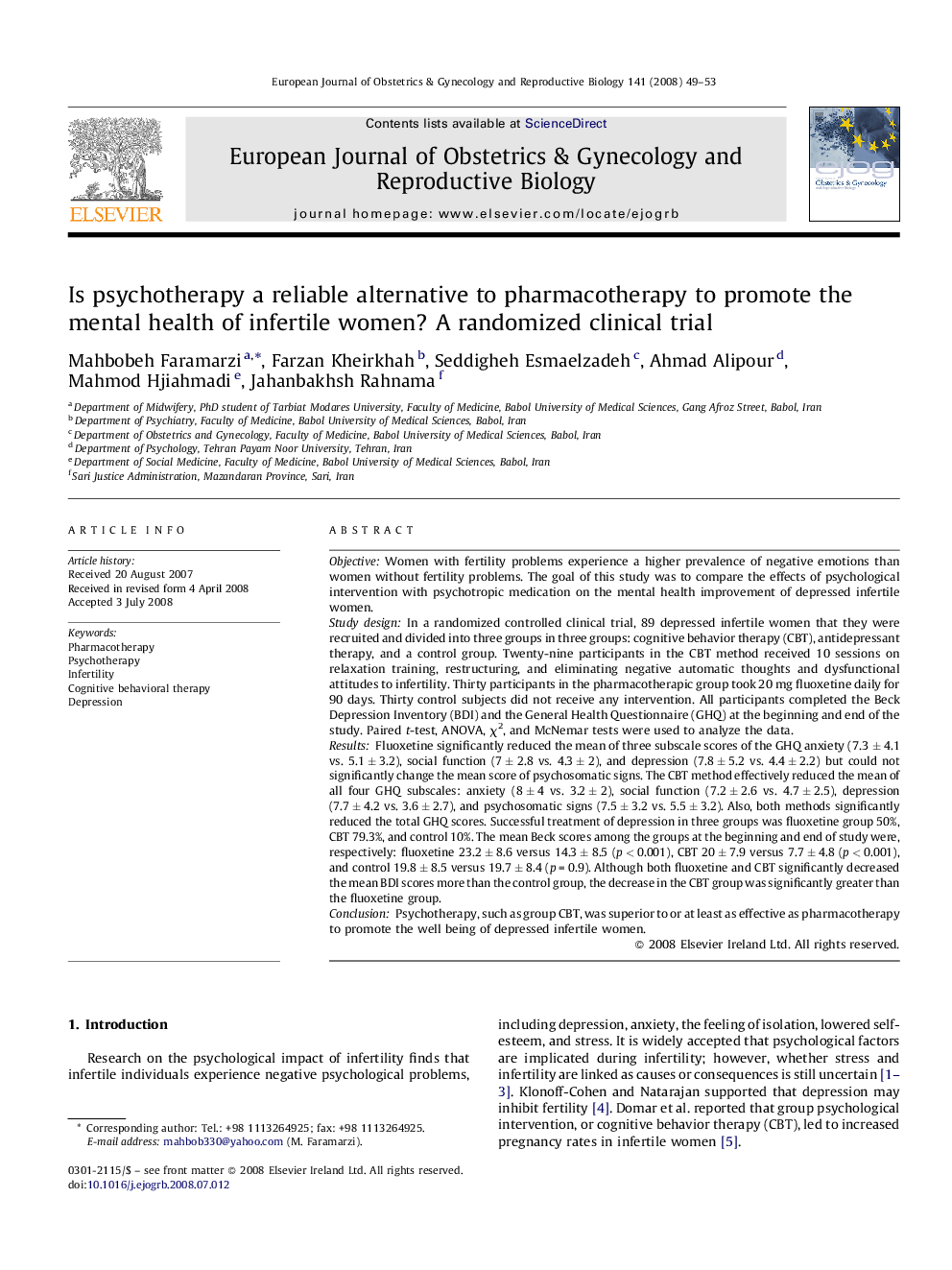| Article ID | Journal | Published Year | Pages | File Type |
|---|---|---|---|---|
| 3921488 | European Journal of Obstetrics & Gynecology and Reproductive Biology | 2008 | 5 Pages |
ObjectiveWomen with fertility problems experience a higher prevalence of negative emotions than women without fertility problems. The goal of this study was to compare the effects of psychological intervention with psychotropic medication on the mental health improvement of depressed infertile women.Study designIn a randomized controlled clinical trial, 89 depressed infertile women that they were recruited and divided into three groups in three groups: cognitive behavior therapy (CBT), antidepressant therapy, and a control group. Twenty-nine participants in the CBT method received 10 sessions on relaxation training, restructuring, and eliminating negative automatic thoughts and dysfunctional attitudes to infertility. Thirty participants in the pharmacotherapic group took 20 mg fluoxetine daily for 90 days. Thirty control subjects did not receive any intervention. All participants completed the Beck Depression Inventory (BDI) and the General Health Questionnaire (GHQ) at the beginning and end of the study. Paired t-test, ANOVA, χ2, and McNemar tests were used to analyze the data.ResultsFluoxetine significantly reduced the mean of three subscale scores of the GHQ anxiety (7.3 ± 4.1 vs. 5.1 ± 3.2), social function (7 ± 2.8 vs. 4.3 ± 2), and depression (7.8 ± 5.2 vs. 4.4 ± 2.2) but could not significantly change the mean score of psychosomatic signs. The CBT method effectively reduced the mean of all four GHQ subscales: anxiety (8 ± 4 vs. 3.2 ± 2), social function (7.2 ± 2.6 vs. 4.7 ± 2.5), depression (7.7 ± 4.2 vs. 3.6 ± 2.7), and psychosomatic signs (7.5 ± 3.2 vs. 5.5 ± 3.2). Also, both methods significantly reduced the total GHQ scores. Successful treatment of depression in three groups was fluoxetine group 50%, CBT 79.3%, and control 10%. The mean Beck scores among the groups at the beginning and end of study were, respectively: fluoxetine 23.2 ± 8.6 versus 14.3 ± 8.5 (p < 0.001), CBT 20 ± 7.9 versus 7.7 ± 4.8 (p < 0.001), and control 19.8 ± 8.5 versus 19.7 ± 8.4 (p = 0.9). Although both fluoxetine and CBT significantly decreased the mean BDI scores more than the control group, the decrease in the CBT group was significantly greater than the fluoxetine group.ConclusionPsychotherapy, such as group CBT, was superior to or at least as effective as pharmacotherapy to promote the well being of depressed infertile women.
